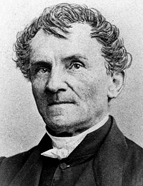

Sixteen years older than the Portuguese writer and trained in theology – like Johan-Josef-Ignaz von Doellinger, Herculano’s well-known German friend – Schaefer was a reference of seriousness and scientific objectivity for Herculano, whose História de Portugal, published ten years after the German’s, seems to provide a complete response to the absence of a work written by a Portuguese author who would follow and deepen the pioneering steps of . So much so that Herculano quotes and praises him on several occasions over more than three decades: in October 1843, in Apontamentos para a história dos bens da coroa (Notes on the history of the crown’s assets); in the first two volumes of História de Portugal (History of Portugal), published in 1846 and 1847; and in 1875-1877, in the text Da existência ou não existência do feudalismo (On the existence or non-existence of feudalism).
With regard to the central issues present in the historiography of the time, Sérgio Campos Matos analysed in detail the characteristics of Schaefer’s work. The German historian was an important milestone in the scholarly and solid analysis of topics that were still controversial in the 19th century. Strongly imbued with the German scholarly tradition in the fields of philology, literary and legal sources, and popular traditions, it is not surprising that he distanced himself from the providentialist tradition of the Battle of Ourique, attributing Portugal’s independence to the qualities of its noble elite (in which he preceded Herculano). On the other hand, unlike the Portuguese historian, he accepted the authenticity and historical legitimising function of the Cortes of Lamego. Schaefer values figures such as Kings João I and Manuel, placing them in context. During the reign of the latter monarch, he saw prosperity, but also symptoms of decline (excessive consumption and luxury, rising prices and corruption) and did not hesitate to offer a critical assessment of the administration of King João V. He was, however, cautious in his characterisation of historical figures (such as Afonso Henriques). He valued the social function of individuals in history, hence the attention he paid to their character.
This work is financed by national funds through FCT - Foundation for Science and Technology, I.P, in the scope of the projects UIDB/04311/2020 and UIDP/04311/2020.
